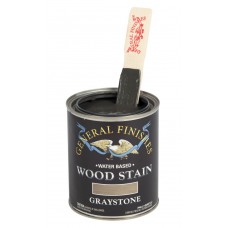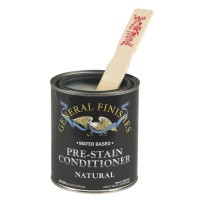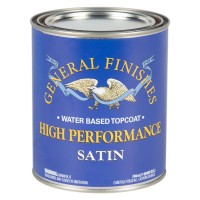Wood Stain Graystone - 946ml
New Formulation Key Improvements:
- Cutting-edge pigments - more consistent colour and less fading over time
- New resin system - no colour pull when applying topcoat
- Longer open time
- Faster dry time
- Extended shelf life
- Low VOC (EU VOC 24 g/l)
Application
May be applied via brush or spray. Stir well before application. Use a clean brush or paint pad applicator. Apply a liberal amount of stain and allow to penetrate several minutes before wiping with a clean paper towel. A second coat may be applied to darken the colour. HVLP: 0.43-0.51” fluid tip / medium cap; 0.051” fluid tip / medium cap. Air- Assisted Airless: 0.011-0.013” fluid tip, 300-600 psi fluid pressure, 10-30 psi air pressure.
Dry Time
20oC and 70% R.H:
- Dry: 1-2 hours
- To Topcoat: 1-2 hours
Application
- Conventional Spray
- Air Assisted Airless
- HVLP
- Brush
- Pad Applicator
- Sealer & Finish Recommendation
Can be topcoated with most water base, oil base, and solvent base finishes, varnishes, & lacquers. Compatible with all General Finishes topcoats. Test adhesion and compatibility on all other systems. Colour will vary dependent upon wood and dwell time before wiping.
General Finishes Sanding Sealers are recommended if not using a self sealing finish for optimum build and smoothness. Topcoats: Water Base: PolyAcrylic, High Performance, Enduro Water Base Lacquer, Enduro Poly, Pre-Cat Urethane or EnduroVar. Oil Base: General Finishes Arm- R-Seal or GF Gel Stain. Solvent Base: Most pre-catalyzed lacquers and conversion varnishes.
Surface Preparation
Surface must be clean, dry and free of dust, dirt, grease, wax, or contaminants. For Raw wood, start sanding with #150 grit recommended. Fill all nail holes or cracks using a water base filler or putty. Remove all dust by vacuuming or wiping with a damp cloth. Do not use tack cloths which contain linseed oils.
Cleanup of Water Based Products
Application tools and materials containing water-based products can be cleaned with soap and water immediately after use.
Product Spills
Spills may be able to be removed from fabric and carpet if cleaned immediately with soap and water.
Storage of Water-Based Products
Please be mindful of the manner in which water-based products are stored and how long they have been in storage.
Life of Product
Water-based products do not last forever, even when unopened. However, the life of the product may be extended with proper care and storage (see Storage Tips below).
Water-based products can last 3-5 years if the can is unopened, in good condition and stored in correct temperatures.
Product that is 3 years old will not look like product that is 6 months to 1 year old. You will see more stratification or separation as the product ages. Always stir thoroughly before using.
Foul Smell
If your product has a foul smell, it is contaminated and no longer in useable condition.
Clumps & Settling
Gravity can cause some solids to settle on the bottom of the can and slight separation on the top. This is normal. If working with older product stir with a paint mixing attachment on a drill.
If the solids dissolve and clumps smooth out after mixing from the bottom, the product is in good condition for use.
Inability to reincorporate large, chunky lumps after stirring for several minutes is an indication that the product has frozen and can no longer be used.
Storage Tips
Water-based finishes crystalise and form a skin due to evaporation when the air-tight seal on a can is broken at first use. The following best practices will increase the life of your product:
- Pry open sealed lids with a paint can opener by hooking under the lid's rolled edge. The use of a screwdriver can disfigure the rim and lid, impairing a complete seal.
- Keep lid closed while working. Pour what you will use into a bowl, paper cup, or plate, and close can lid as you work.
- Clean the chime of the can thoroughly with a paper towel before closing to create a complete seal. Product falling into the chime can be minimized by using a pouring lid, such as Fitsall. Avoid wiping used brushes on the lid.
- Pound the lid in place using a rubber mallet to avoid distorting the chime or lid. Dents in the lid from direct contact with a hammer can impair a complete seal. Alternatively, place a flat piece of wood over can lid and firmly pound shut.
- Store in moderate temperatures. Avoid temperatures below 10°C or above 26°C. Keep from freezing. Frozen and heat-damaged product cannot be revitalised. Temperature-controlled spaces, such as a basement, are ideal for storage. Do not store product in an attic, garage, in direct sunlight, or next to something warm like a water heater or furnace.
- Store can upside down to create a liquid seal, minimize evaporation and reduce the chance of crystallization. Decant remaining product from the can before stirring.
- Decant leftovers to a smaller container when the finish is almost used up. Alternative storage containers for water-based products are plastic FIFO bottles or glass bottles. Do not fill metal-lidded containers completely to prevent them from rusting.
The following water-based product mixtures can be stored:
- Product thinned with up to 15% General Finishes Extender or General Finishes Accelerator can be stored, with the exception of thinned General Finishes Water Based Wood Stain.
- Mixtures involving colours & sheens within the same product line, such as:
- High Performance Satin + High Performance Gloss
- Snow White Milk Paint + Coastal Blue Milk Paint
- Amber Dye Stain + Merlot Dye Stain
The following product mixtures should NOT be stored:
- Any water based product with thinned tap water; water often contains bacteria that will adversely affect stored paint.
- Topcoat + Stain or Paint
- Milk Paint + Chalk Style Paint
- Water Based Wood Stain + Dye Stain
Furniture Care and Maintenance
Cure First
You have just finished applying a fine furniture finish. Treat gently until the paint or topcoat have fully cured. Allow 21 days for a water-based finish to cure before cleaning.
Regular Cleaning and Maintenance
- Remove dust with a water-dampened cloth. Dust can build up over time and may scratch or dull finishes if not removed regularly.
- Remove fingerprints, cooking fumes and smoking residue with mild soap and water. These contaminants will not harm the finish, but they accumulate on surfaces and dull the original lustre.
- As with all fine furniture finishes, avoid using furniture polish, cleaners or dusting sprays that contain silicone, alcohol, ammonia and anything acidic. Exception: We have successfully cleaned with Clorox wipes.
- Clean up water, alcohol and food spills in a timely manner and use placemats & coasters to protect the finish.
- Future finishes or touch-ups may not adhere properly or perform as desired over a contaminated surface. Some contaminants, such as silicone, seep through finish into the wood and often cannot be removed.
- Avoid excessive exposure to direct sunlight, high temperatures or high humidity. These can damage furniture and finishes.
Technical Data Sheet (TDS)
Water Based Wood Stain - 2019-04
Safety Data Sheet (SDS)
Water Based Wood Stain: Antique Brown - 2019-01
Water Based Wood Stain: Antique Cherry (Discontinued) - 2018-06
Water Based Wood Stain: Antique Oak - 2018-06
Water Based Wood Stain: Black - 2018-06
Water Based Wood Stain: Black Cherry - 2018-06
Water Based Wood Stain: Brown Mahogany - 2018-06
Water Based Wood Stain: Cabernet - 2019-01
Water Based Wood Stain: Country Pine (Discontinued) - 2018-06
Water Based Wood Stain: Early American (Discontinued) - 2018-06
Water Based Wood Stain: Espresso - 2018-06
Water Based Wood Stain: Golden Oak (Discontinued) - 2018-06
Water Based Wood Stain: Graphite - 2019-01
Water Based Wood Stain: Graystone - 2019-01
Water Based Wood Stain: Hickory - 2019-01
Water Based Wood Stain: Onyx - 2019-01
Water Based Wood Stain: Pecan - 2018-06
Water Based Wood Stain: Provincial - 2019-01
Water Based Wood Stain: Rosewood (Discontinued) - 2018-06
Water Based Wood Stain: Sedona - 2019-01
Water Based Wood Stain: Shaker Maple (Discontinued) - 2018-06
Water Based Wood Stain: Tobacco - 2019-01
Water Based Wood Stain: Walnut - 2018-06
Water Based Wood Stain: Weathered Gray (Discontinued) - 2018-06
Water Based Wood Stain: Whitewash - 2018-06
Colours on Maple
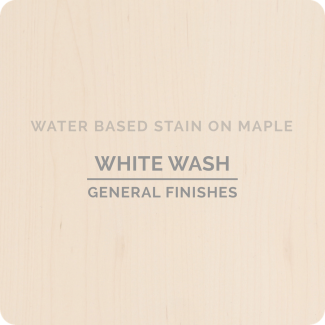

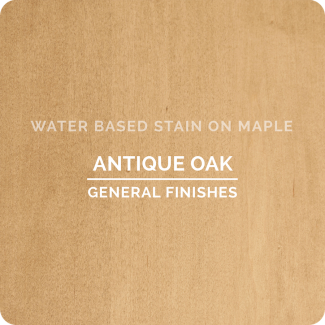
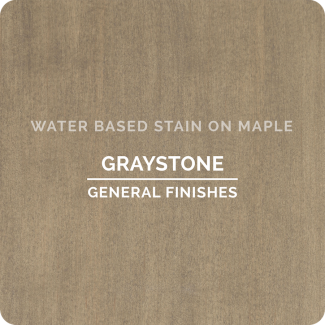
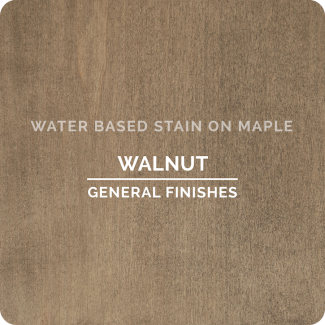
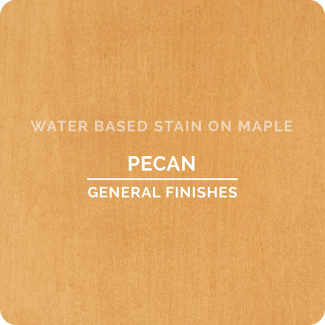
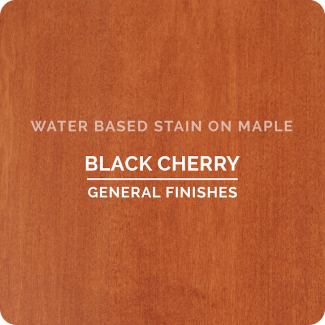
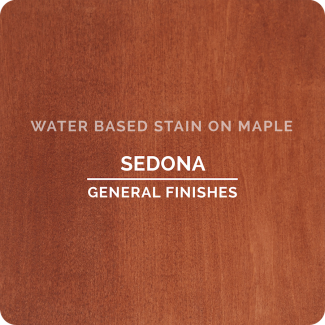
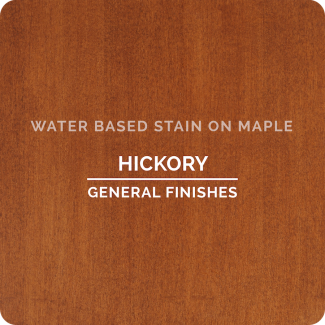
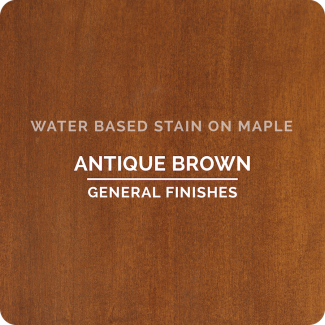
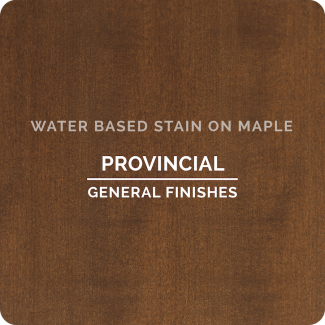
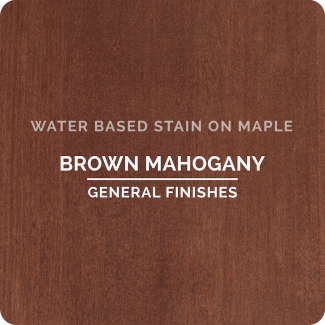
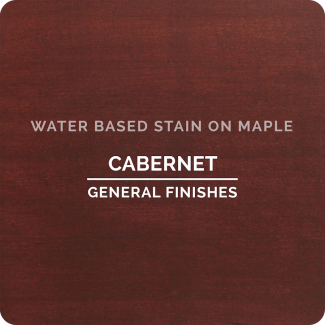
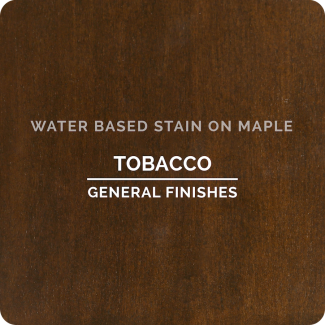
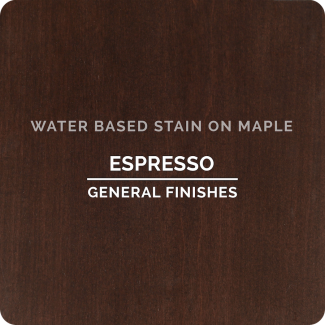
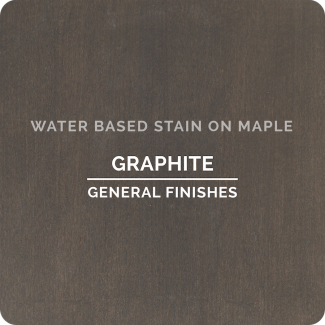
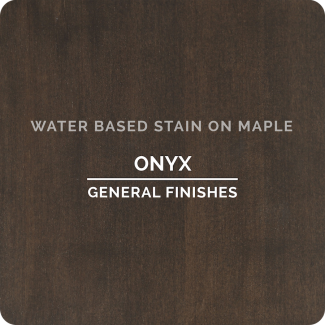
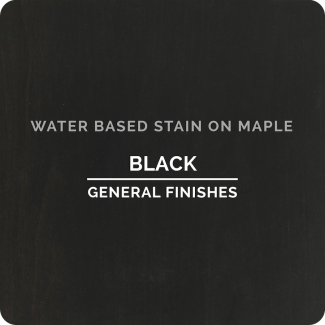
Colours on Maple
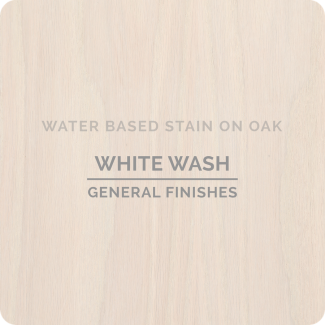
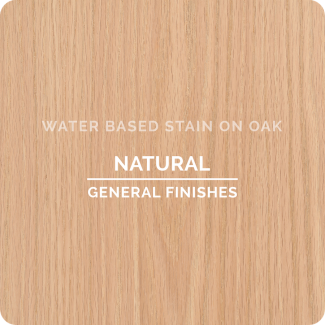
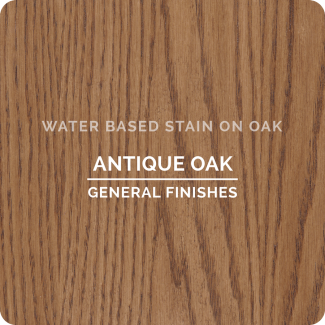
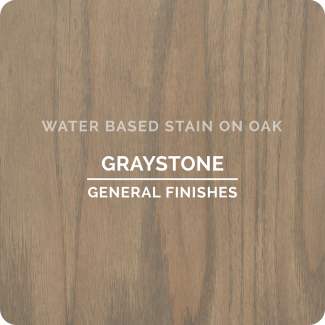
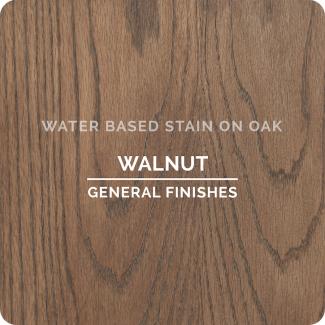
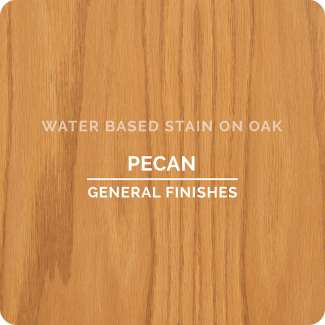
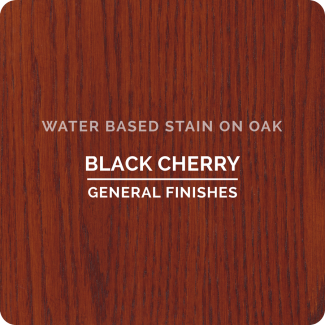
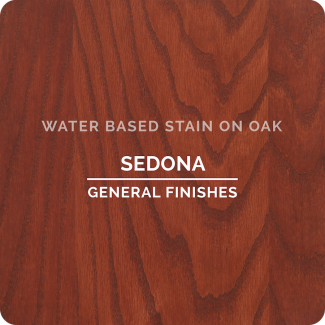
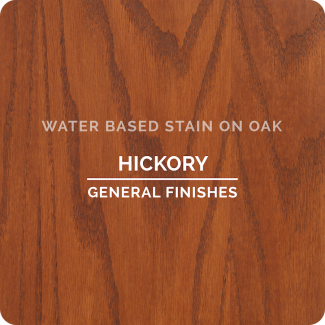
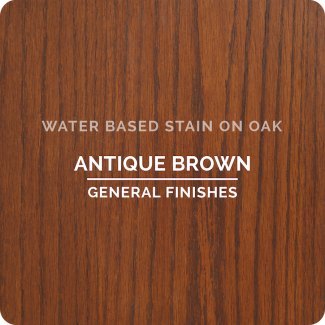
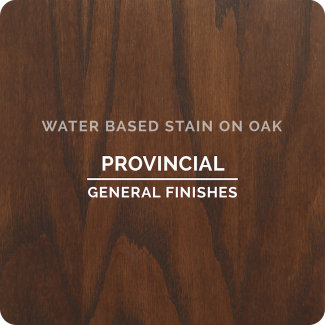
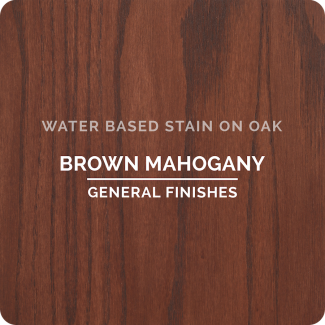
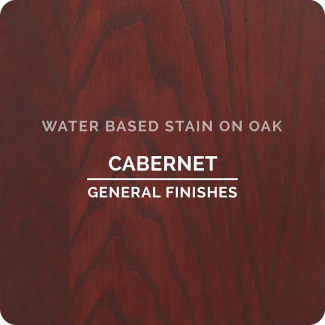
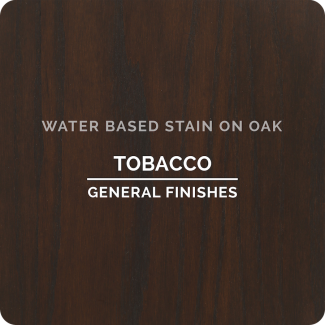
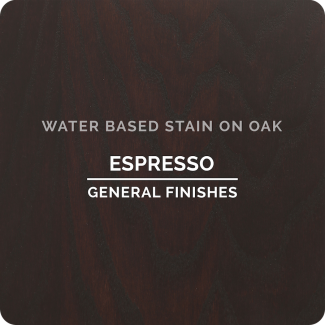
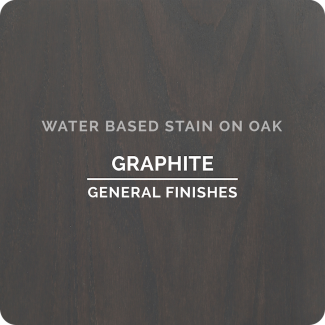
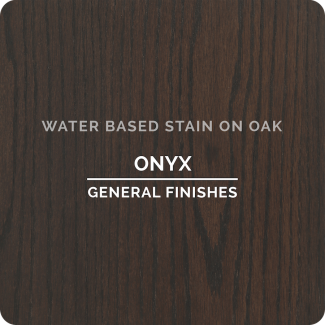
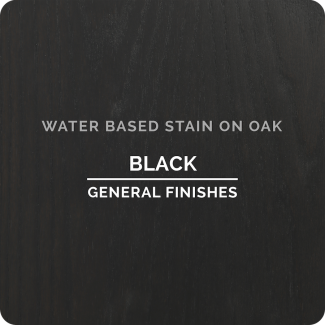
Product Brochure
FAQ
Can the water-based Wood Stain be used on MDF? Yes, our stains work fine on MDF. If possible test first on a sample or hidden area to check absorption and colour depth. If too dark either mix the stain with a topcoat, or first use our pre-stain conditioner which will reduce absorption.

